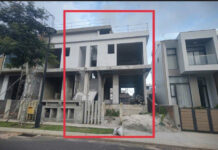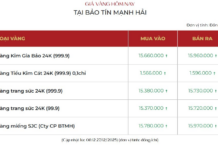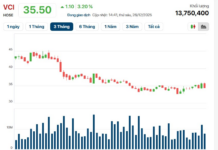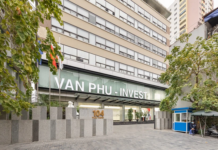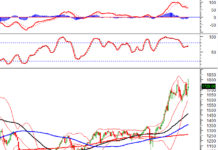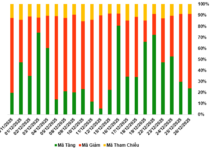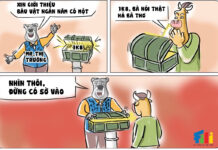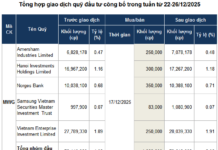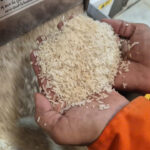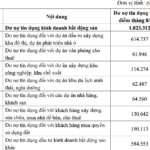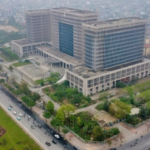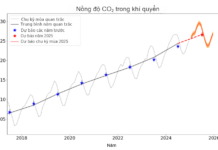On October 31, the Government Inspectorate of Vietnam (GIV) announced the inspection findings regarding a project facing challenges at the Ministry of Foreign Affairs (MOFA Headquarters).
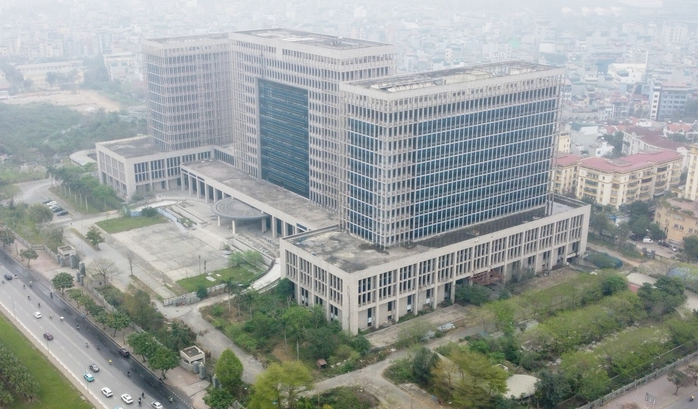
The MOFA Headquarters project is located on Le Quang Dao Street, Hanoi.
According to the GIV, the MOFA approved the total investment levels for two sub-projects: Project 1, the site preparation project, with a total investment of VND 159.388 billion, approved in February 2009; and Project 2, the main construction project, with an initial investment of VND 3,484.015 billion, approved on July 7, 2009. The project was scheduled to run from 2009 to 2014.
Regarding the adjusted total investment, from 2012 to 2020, the MOFA carried out procedures and approved adjustments to the total investment, dividing the project into three phases.
Specifically, in July 2012, the MOFA submitted an adjusted total investment of VND 6,946.88 billion. By July 2014, the MOFA adjusted the total investment for Phase 1 to VND 4,022.695 billion, with a timeline from 2007 to 2016, including: Project 1 with a total investment of VND 147.774 billion; and Project 2 with a Phase 1 total investment of VND 3,874.921 billion.
In 2018, the MOFA approved the total investment for Phase 2 of the project at VND 706.891 billion, with construction starting in January 2020. Thus, the adjusted total investment (for two phases) exceeded VND 4,729 billion.
In 2020, the MOFA further approved adjustments to the total investment for the entire project, bringing the total investment to over VND 6,101 billion. The project timeline was extended to 2025.
In its inspection conclusions, the GIV highlighted the risk of waste in the project’s implementation. The project has been delayed by over 10 years, undergoing four adjustments (with the completion date extended from 2014 to 2025), failing to meet its objectives, and posing a risk of waste in several areas.
Specifically, waste arises from project delays and halted construction, leading to additional costs. The phased halt in construction has prevented the project from being completed on schedule, resulting in contractors incurring costs for repairs and fixes before final acceptance and handover. Additional expenses include warranty costs for equipment exceeding warranty periods, as well as management fees, bank guarantees, and more.
Work that has been accepted (Buildings A and B, completed in terms of rough construction and exterior finishes) since late 2016, totaling VND 1,666.5 billion in construction and equipment, remains unfinished after nine years, preventing handover and use.
Waste also stems from allocated funds not being fully utilized. From 2009 to 2024, the project failed to use all allocated funds and did not achieve its goals, risking waste as per Article 3, Clause 2 of the 2013 Law on Thrift Practice and Waste Prevention.
Regarding depreciation of fixed assets, the inspection agency noted that according to Circular No. 162/2014/TT-BTC from the Ministry of Finance, fixed assets in agencies, organizations, or units not involved in production, business, services, or joint ventures must be depreciated.
The Project Management Unit temporarily handed over completed areas and items from Phase 1 of the MOFA Headquarters (Building B, left) to the Administration and Finance Department for use.
However, since the handover of Building B (left), the MOFA has not calculated depreciation for fixed assets. Additionally, some completed items have been put into use without formal acceptance and handover procedures (e.g., the outdoor landscaping package).
Concerning project management costs, the Project Management Unit conducted final settlements for eight overseas trips in 2010, 2012, 2013, and 2014, including officials not involved in project management. The costs for these officials totaled VND 0.738 billion, violating project cost management principles.
The GIV concluded that responsibility for the project delays and potential state budget waste lies with the Minister and Deputy Minister of Foreign Affairs overseeing the project, the Administration and Finance Department, the Project Management Unit, and related individuals and organizations.
Which Rice Varieties Dominate the 90% Import-Dependent Rice Market?
Premium white rice, aromatic milled rice, and glutinous rice emerge as prime commodities poised to drive export growth into Singapore.
Diplomatic Hub Project Stalled for a Decade Amidst Violations, Proposed Handover to PVN
The Central Inspection Committee has transferred case files of five violations at the Ministry of Foreign Affairs headquarters project to the Ministry of Public Security for further investigation. Additionally, the decade-delayed project has been recommended for transfer to the Vietnam National Oil and Gas Group (PVN) to address ongoing issues.
Vietnam Pioneers as the World’s First Nation to Achieve This Ambitious Goal
Prime Minister mandates the immediate operational launch of Vietnam’s International Financial Center by November.
National Steering Committee Proposal to Combat Air Pollution
According to Deputy Minister of Agriculture and Environment Le Cong Thanh, the Ministry is advising the Prime Minister to establish a National Steering Committee on Air Pollution Control, particularly in the Capital Region. This initiative aims to strengthen and maximize the effectiveness of the entire political system in addressing this challenging yet urgent and essential task.







